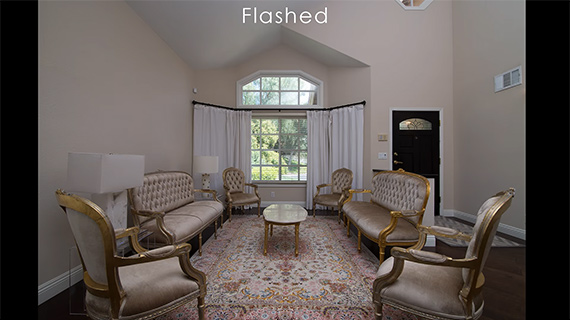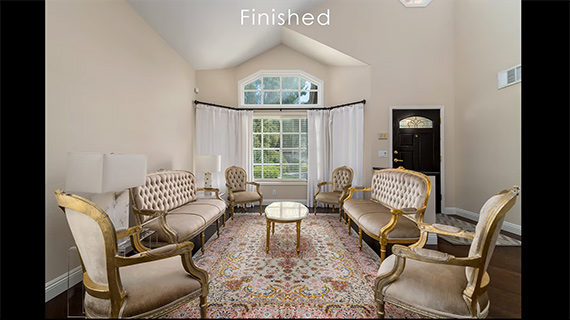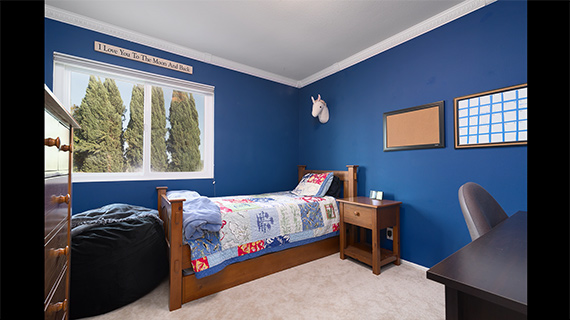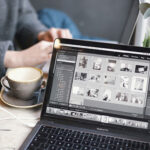Shooting architecture photos using artificial lights can be a challenge. Real estate photographer Nathan Cool demonstrates how you can shoot with external lights using manual settings:
Speedlight to moonlight power ratio
As a general rule, Cool suggests the following ratio for speedlight and monolight. A speedlight firing at its full power (1/1) setting is the equivalent of a 1/4 power setting on a 600 WS monolight.
Exposure settings
Another favorite setting for indoor shooting when using speedlights is ISO 320 and f/6.3. The same when using a monolight is ISO 250 and an f-stop of f/7.1.
When to use monolight and speedlight
A critical question to address is choosing the right light. Which light should you choose in a specific situation? Cool explains this with a few examples.
In this scene, the ambient lighting coming from the front window is way too much to give a balanced exposure. The idea is to suppress some of that ambient exposure so that the final image looks more balanced.
This is an example of what is achievable using just flash.
And this is the final image with ambient and flash mixed.
The final exposure is achieved using a monolight set to ¼ power + 0.3 stop to about 0.7 stop exposure. That meant this couldn’t have been achieved with a single speedlight.
You could alternatively use two speedlights. One set to full power and the other set to about quarter to half power and achieve the same shot.
Color cast
A thing that you have to watch out for is the color cast especially when using a powerful monolight and particularly when using at slightly more than half power.
Using light shapers
Some rooms, particularly those without a white ceiling and with hardwood floors, are particularly difficult to bounce light off of. The problem is compounded when there is a lot of ambient light that creates an unbalanced exposure if you don’t mix in artificial light. Cool explains that you can use a white reflector to get that desired bounce.
Using full power
There are times when you need to set your lights at full power. For example, in this room, the dark walls soaked up the light forcing Cool to use full power. The final blended image looked like this:
Watch the rest of the video for some more insights into tricky lighting situations you might come across in your real estate photography assignments.
Like This Article?
Don't Miss The Next One!
Join over 100,000 photographers of all experience levels who receive our free photography tips and articles to stay current:








Leave a Reply